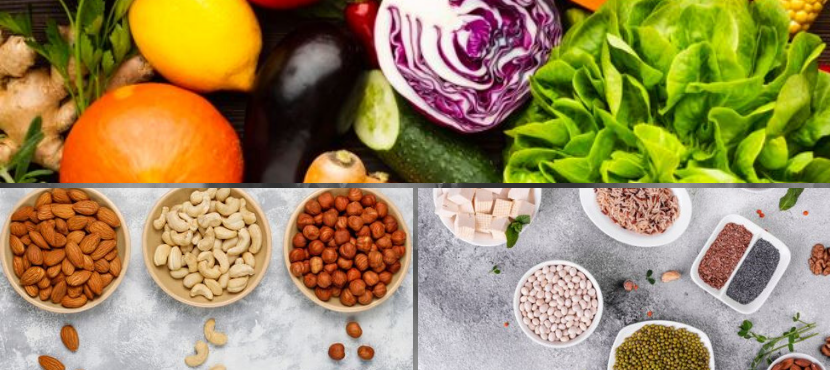Top Vegetarian Sources of Protein
Protein is made from basic building blocks called amino acids. The best way not to be protein deficient is to include protein 60 to 80 grams per day. There are many perceptions about food and eating habits. The study shows that many Indians are not getting enough protein from their daily diets. As many people who follow strict vegetarian are unaware of their daily protein requirements, they are protein and vitamin B12 deficient. Not many Indians know its overall impact it creates on health and wellness when they are protein deficient. In this blog, we are going to discover some of the best vegetarian protein sources.
Remember, our body does not store proteins and it has to come from our diet. There are different sources of proteins and they are plant sources and animal sources. Animal sources of proteins contain all essential amino acids and are easily absorbed. Some of the animal sources of proteins include eggs, fish, chicken and meat. Most plant sources or natural sources for vegetarians lack at least one of the essential amino acids when compared to animal sources of protein.
Here is a list of top 10 sources of veggie protein
Look at some of the protein-rich food veg in India to add to your diet.
- Vegetables like Broccoli, Peas and Mushrooms
Add these protein-rich vegetables as part of a balanced diet.
- Paneer – A fresh cheese
It is healthy when taken in the right amounts. It contains 18 grams of proteins per 100 grams. Paneer is an excellent source of conjugated linoleic acid, a fatty acid responsible for the fat-burning process. If you wish to reduce your weight, then include a paneer dish in your high protein vegetarian diet plan.
- Pulses and legumes
Pulses and legumes are low in fat and very rich in protein. Black beans and chickpeas are a great source of vegetarian protein. Moong dal, green moong, horse gram are also rich sources of protein. These high protein non-meat foods have many health benefits due to their high nutritional content. You can combine beans with rice to meet your dietary needs.
- Quinoa
It is a seed, which is high in protein and contains all nine essential amino acids. It can be prepared and eaten similarly like a grain.
- Tofu and Soy
Soybeans are used to make tofu, soymilk and many other foods. Tofu and soy are high in protein and contains all the essential amino acids that your body needs.
- Nuts and Seeds
- Nuts and seeds are valuable sources of protein. They also have omega-3 fatty acids, vitamins and minerals.
- Almonds: 20.8 grams of proteins per 100 grams
Cashew: 21.2 grams of proteins per 100 grams
Walnuts: 15.6 grams of proteins per 100 grams
Pistachios: 20 grams of proteins per 100 grams - Hempseeds, sunflower seeds, chia seeds and sesame seeds are also rich in proteins.
- Natural Greek Yogurt
- Greek yogurt is a great dairy product and it is different from other yogurts. It contains probiotics, which are good bacteria for restoring a healthy bacterial balance. It is also rich in proteins.
- Amaranth
Amaranth leaves are edible leafy vegetables that are protein-rich. Amaranth grain is also a good source of protein. It contains lysine, an amino acid, which is not present in many grains. Amaranth leaves are used by those who want to lose their weight.
- Dried Colocassia Leaves
Colocassia leaves are a good source of protein. These leaves are used to make a curry, commonly known as Kesa or Kesuvina Palya, in the southern part of Karnataka like Shimoga, Chikkamagaluru Hassan and Coorg district
Device a high protein vegetarian diet plan from these protein-rich sources, to maintain ideal body weight, muscle mass and blood sugars.





No Comments